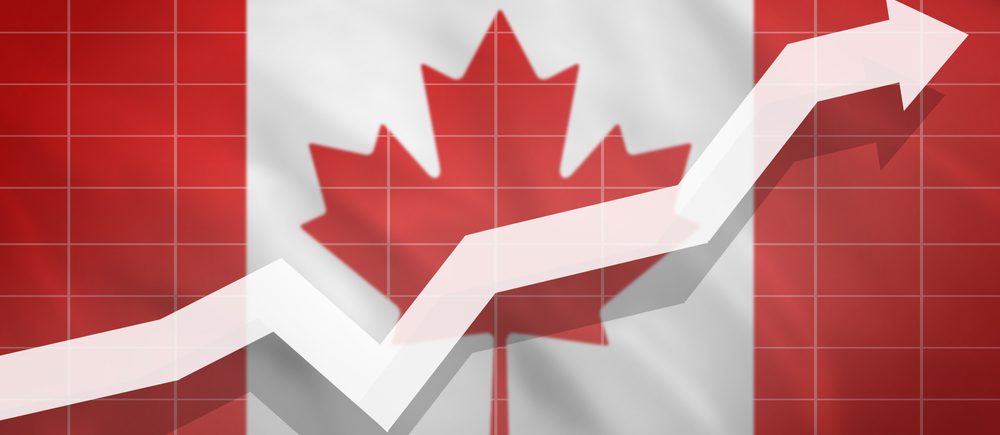Most economists do predict a 0.75-point rate hike decision by the Bank of Canada on Wednesday, followed by another super-sized rise next autumn. This will be the biggest rate increase in decades, a three-quarter-point rise, which comes within the framework of combating hot inflation, and looks set to continue with jumbo-sized rises in the autumn.
A full-percentage-point increase cannot be regarded as unlikely, given inflation is roughly four times higher than the Bank of Canada’s 2% target, expectations for price increases have moved higher and tight labour market conditions have triggered sizable wage gains.
Given strong growth, tight jobs figures and surging inflation, the Bank of Canada is expected to hike rates by 75bp to 2.25% in line with market expectations and should have a contained impact on the Canadian dollar, which continues to face some downside risks in the near term on the back of a challenging global environment.
The BoC’s commitment to raising rates aggressively is seen as a positive factor for the Canadian dollar, but also one that may only emerge beyond the short term. That is because markets are already pricing in a 75bp move in July and, even more crucially, CAD is driven by external factors at the moment.
The short-term outlook for the Canadian dollar is still challenging regardless of the BoC policy, given widespread fears of a global slowdown, USD strength, and oil price instability. As the market appears to be trading more and more on recession fears, North America’s lower vulnerability to global slowdown compared to Europe should still give signals for potential weakness of the Canadian currency. A move to 1.31-1.32 in USD/CAD is possible in the near term, but the rally may start losing some steam beyond that point.
After all, the Canadian economy is strongly growing, has record employment levels, and its inflation is running at 7.7%, the fastest rate since January 1983. The housing market is also red hot while Canada’s strong commodity-producing sectors mean it is far more robust than most major economies to price spikes.
The Bank of Canada has indicated that it sees the “neutral” range for the policy interest rate as 2-3%. Given that Canada is currently at 1.5% and central bankers have expressed a desire to see interest rates move to the top or even beyond that range, economists also expect the BoC to follow the US Fed’s lead and implement a 75bp hike at its 13 July meeting.
The BoC is unlikely to have everything done with just 75bp. At the June policy meeting, the Canadian central bank warned that “the risk of elevated inflation becoming entrenched has risen” and there was a clear need to “keep inflation expectations well anchored”.
The latest Bank of Canada survey of consumers and businesses showed that households expect inflation to still be at 5% in two years, while 78% of businesses expect inflation to exceed 3% over the next two years, which will not provide the BoC with any comfort. In a decent growth environment, the BoC is expected to follow up with 50bp hikes in September and October with an additional 25bp hike expected for December.

 Noor Trends News, Technical Analysis, Educational Tools and Recommendations
Noor Trends News, Technical Analysis, Educational Tools and Recommendations




